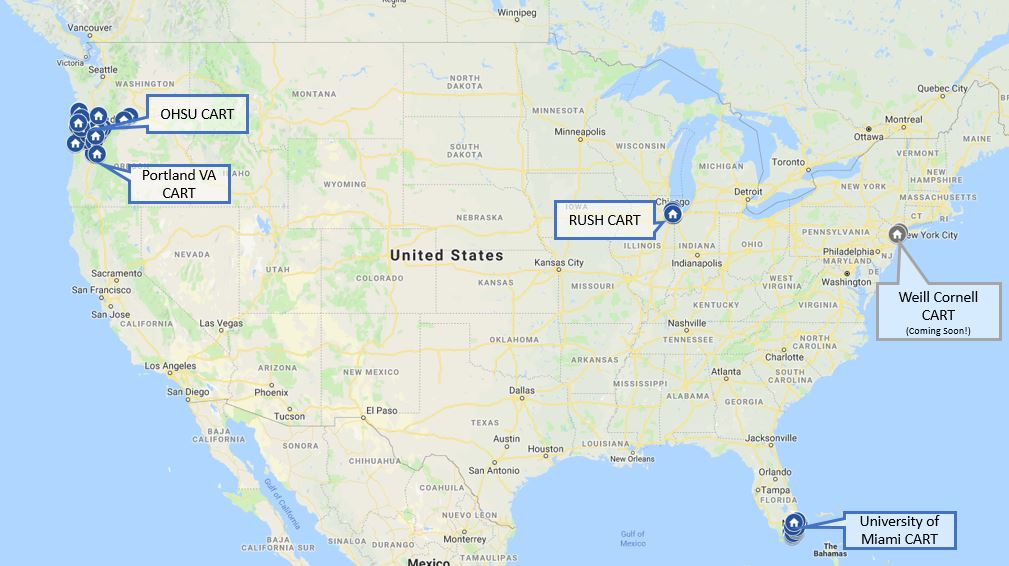Our Sites
The four sites that form the CART Initiative include research participants that represent a wide array of life scenarios. Having a diverse group of participants helps researchers determine if the technologies used to study aging in place are inclusive, widely applicable and if they can be easily integrated into a variety of future research studies.
The CART technology platform is outfitted in the homes of individuals who are particularly challenged to remain independent, due to their advanced age, medical or health conditions or socioeconomic status. Participants include veterans living in rural communities, minorities (African-American and Hispanic) and low-income octogenarians.
Researchers and primary investigators are collaborating in this nationwide study. Learn more about the CART Initiative's team members.
The four sites
Researchers at OHSU are focusing their research on low-income seniors— specifically those who are over the age of 62 and are living alone or with a partner. Participants live in section 202 housing communities in the Portland metropolitan area.
Dr. Jeff Kaye, Director of ORCATECH and the Layton Center for Aging and Alzheimer's Disease at OHSU, is the Primary Investigator for this site.
Participants at this site are recruited from the Veterans Integrated Service Network in the Pacific Northwest. These veterans are over the age of 62 and are recruited from Oregon-based clinics and various Veterans service organizations. Since these individuals live in rural areas of the Northwest (Oregon and Washington state), many of them do not have easy access to medical care and have difficulty traveling to specialty clinics for face-to-face care.
Dr. Lisa Silbert is the Primary Investigator for this site.
Participants at this site are recruited from the Minority Aging Research Study (MARS), which is a longitudinal study established in 2004 at Rush University Medical Center in Chicago. MARS follows local older African-Americans who are over the age of 65 and assess changes in their cognitive and physical health as they age. Many of these individuals are at risk for incident or unplanned health events, which could complicate their ability to age in place.
Dr. Lisa Barnes is the Primary Investigator for this site.
Participants at this site are recruited from the Personal Reminder Information and Social Management System (PRISM) study, which is organized and implemented by the Center for Research and Education on Aging and Technology Enhancement (CREATE). The PRISM study began in 2011 and is primarily based at the University of Miami, which is one of the three partner universities involved with CREATE. Participants at this site are at least 62 years old and many of them identify as minorities (African-American or Hispanic). Because many of these participants are already enrolled in PRISM, they are familiar with computers and other home-based technologies.
Dr. Sara Czaja, Director of CREATE, is the Primary Investigator at this site.
Map of CART Platform Installations
The blue home icons symbolize homes that are enrolled in the CART research study, recruited by the four main sites: OHSU, the VA in Portland, Oregon, Rush University in Chicago and the University of Miami.
